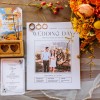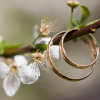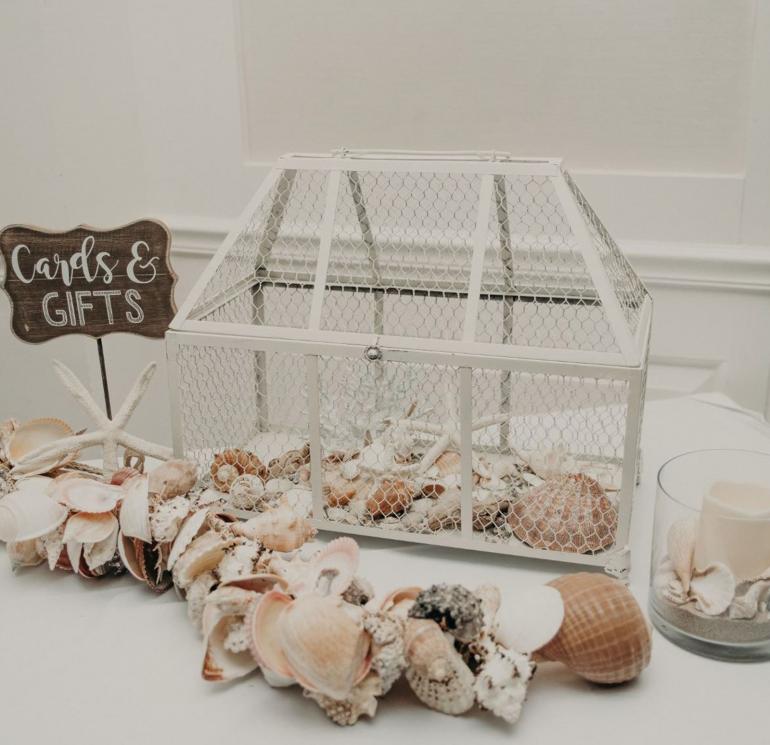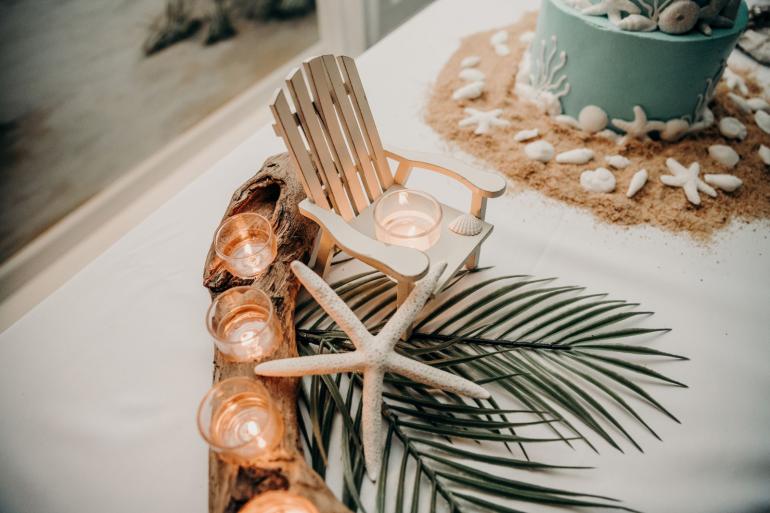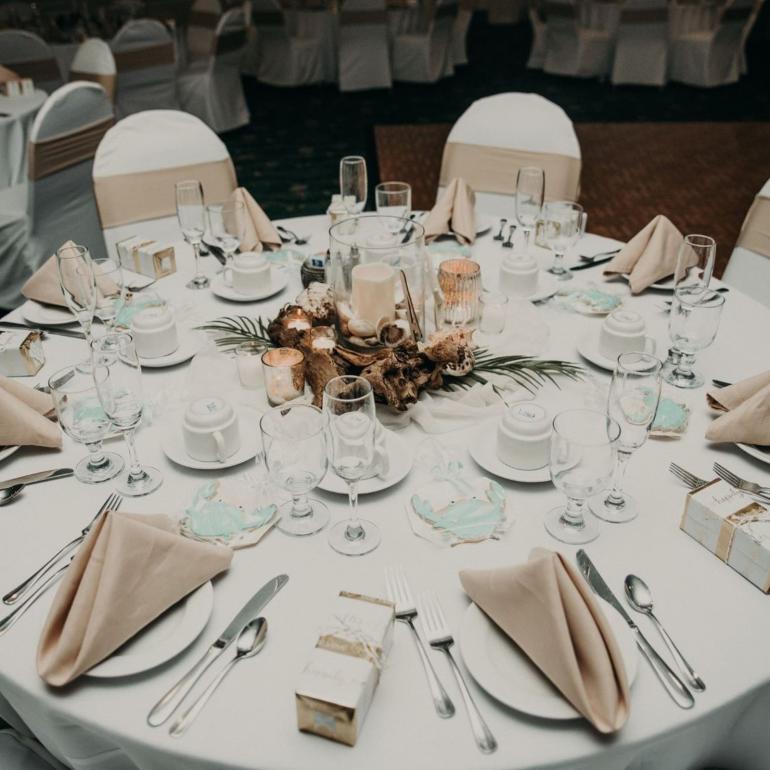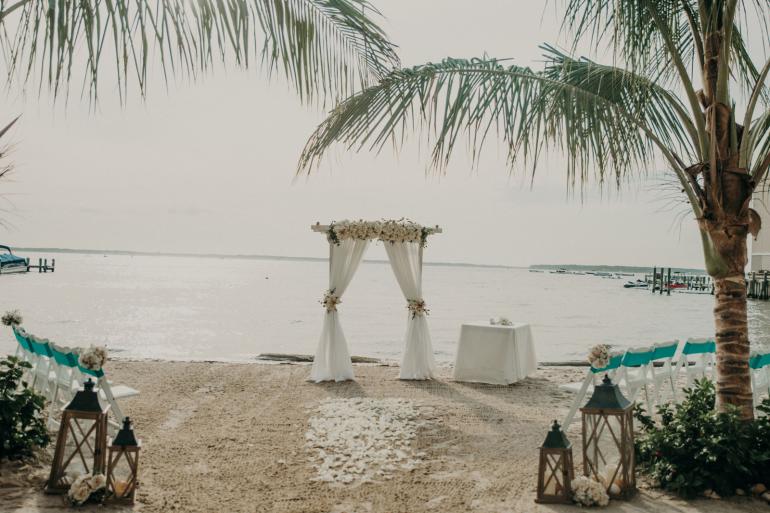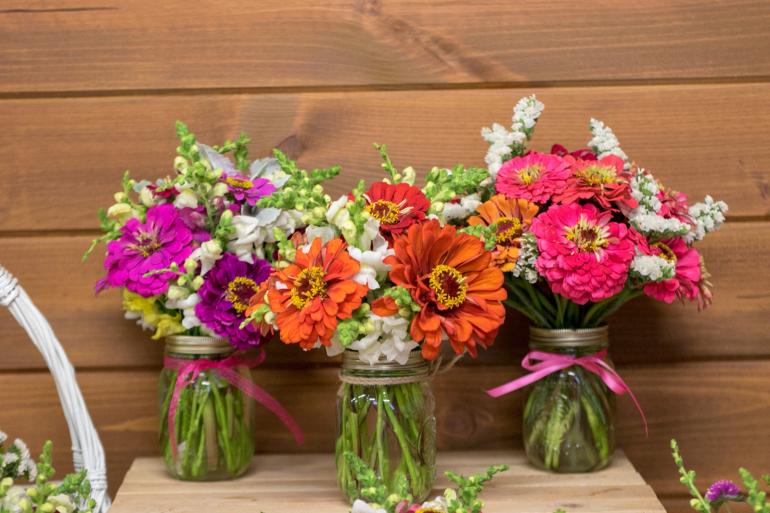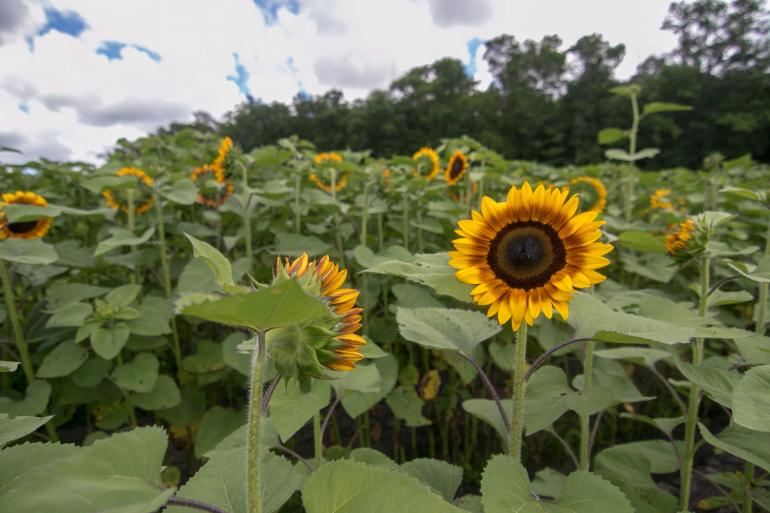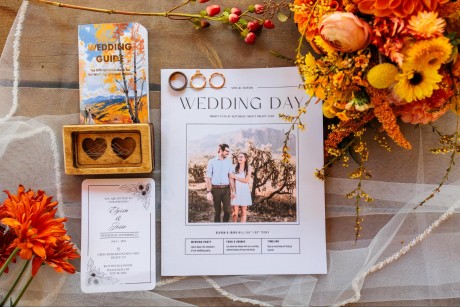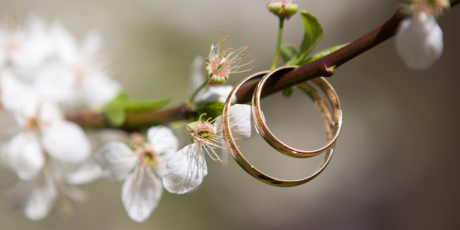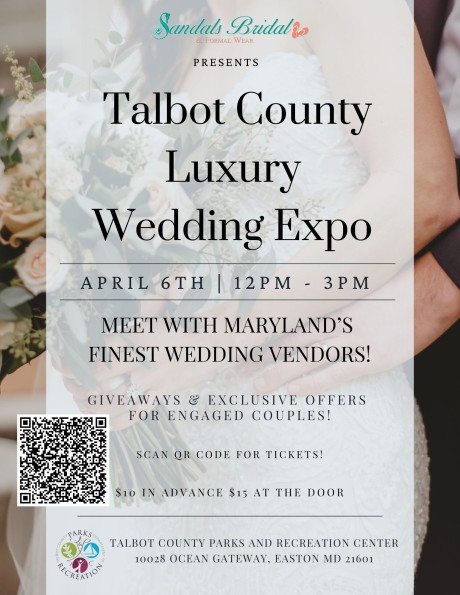For many couples, a beach wedding is a dream come true. For those lucky enough to find themselves on a Delmarva beach, you’ll quickly see why so many people return here year after year, and it’s not just because of the boardwalk fries and saltwater taffy — although we totally understand that draw.
Our beloved beaches are the main attraction to the tourism on which our towns thrive. As any native of Coastal Delmarva can tell you, our shores and wetlands are home to one of the most remarkable ecosystems found on the East Coast. And we are fiercely protective of those beaches, and the many creatures that call them home. From strawless summers and balloon bans, to oyster bed conservation and monthly beach clean-ups, we do our best the preserve the beauty of these coastal terrains.
Let’s face it — it’s fairly easy to be eco-conscious when it’s just a matter of picking up your trash when you’re done with that seaside picnic, or just turning down a plastic straw with your drink. But what about when you’re planning a wedding? The question of “paper or plastic?” takes on a whole new meaning. And in some cases, the answer really should be, “Neither.”
Going green may sound like a daunting task, but we’re here to tell you that it’s not as scary (or expensive) as it might seem. And if you’re working with a wedding planner, the job just got a whole lot easier. Jodie Noonan, owner and consultant of Barefoot Beach Bride in Ocean City, Md., gave us a peek behind the scenes at their new location and shared some methods they employ to keep things eco-friendly.
Reuse or rent for some green romance
Barefoot Beach Bride is known for providing the wedding experience in a full-service package format, from small, intimate ceremonies, to the standard large wedding with a reception.
“We consider ourselves to be a team of multiple vendors under one roof — able to handle every detail of the wedding process. From start to finish, we can pre-design or customize according to the client’s needs,” said Noonan.
For the eco-conscious couple, that works in your benefit. Pre-designed packages often include the use of high-quality artificial and reusable decor. Noonan gave us a quick tour of their design room, pointing out gorgeous elements, such as arbors, lanterns, mirrors and signs that don’t prescribe to the one-and-done extravagance of buying multiple items for a wedding that will never be used again.
“Reuse through rentals is the No. 1 method we use to stay environmentally friendly,” she explained.
Not to mention, linens and glass are so much prettier than disposable place settings.
Another green element of these pre-designed packages includes biodegradable confetti, real petals, or seashells used for beachfront ceremonies. People forget that traditional silk petals or plastic confetti will eventually make their way into the ocean, wreaking havoc on sea life, so these natural confetti options provide a great alternative.
Food is one of the major planning decisions of any wedding. But you don’t have to sacrifice taste to stay green. When you’re choosing a caterer, consider working with someone who sources locally. Many caterers are embracing the farm-to-table movement, which means more choices!
Not only does this put the money back into the local economy, but it also provides fresher, tastier, and often more ethically sourced, seafood, meats and produce for your reception. And if you’re going to have seafood at a beach wedding, why wouldn’t you want it to be local?
Stationery and flowers are two areas where you can fully embrace the green mindset. Paperless invites might come to mind, but we still recommend snail-mail for your wedding. Just remember, “sustainable” is not synonymous with lower-quality when it comes to your invitation suites! Recycled paper, vegetable-based inks, cottons and bamboo are all available in gorgeous colors and amazing textures. Take it one step further and use paper embedded with seeds that guests can plant, rather than throw away, after the event.
Locally-grown layers of love
And while growing your own flowers may not be an option, why not reach out to a local grower? The Thistle Flower Bar at Barefoot Beach Bride often works with several floral farms to obtain local greenery and fresh flowers for bouquets and arrangements.
“For tropicals, we do have to source elsewhere, but when we can work with local growers, that’s always our first choice,” said Noonan.
Celtic Acre Florals in Frankford is one of several growers in Coastal Delmarva that also creates wedding bouquets and arrangements. You can often find their flowers at the local farmers’ markets, available in small bouquets or buckets of single stems to make your own.
The creative hands behind the flowers, Jackie Mullikin, said, “Being a flower farmer allows us to form a connection with the land. This makes using locally grown in Delaware florals for your weddings and events even more special.”
We can’t ignore the fact that COVID-19 has taken a toll on the wedding industry, and that included how quickly things ship, including flowers. But that’s another advantage of locally-grown flowers.
“I’ve had flowers come in that are barely usable because it’s taken so long to get here. There’s nothing fresh about that. And there’s something special about incorporating locally-grown flowers into your wedding, bringing a deeper emotional impact if you yourself are a local to the area,” Mullikin said.
And you can’t beat the price. Mullikin’s wedding arrangements are eye-catching, full and overflowing, often for half the cost of what you might find at a traditional florist. She doesn’t have to limit the number of blooms in a bouquet when she’s got fields just outside that she can pick from when running low.
With a long list of the different varieties she’s growing, Mullikin said she believes that when you grow the plant from seed, you have a better understanding of the flowers and how they hold up. And its fun for the couples to see where their florals are from, and they can actually watch their wedding flowers grow.
Going fresh with your arrangements often means you have tons of flowers left over at the end of the wedding. Keep the green feeling going by either donating the flowers to local nursing homes or shelters, or give them as gifts to your guests!


